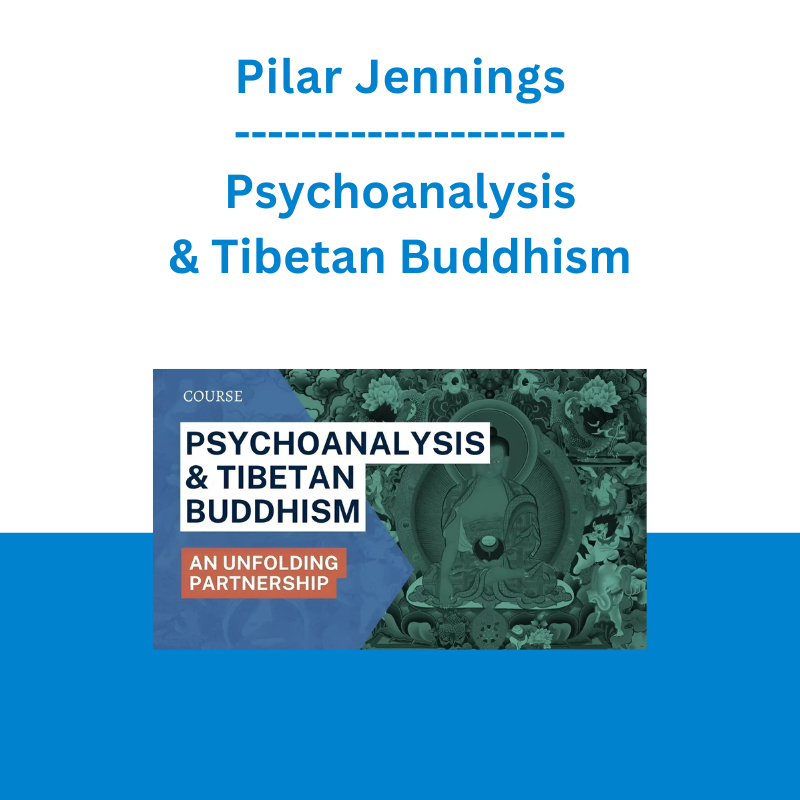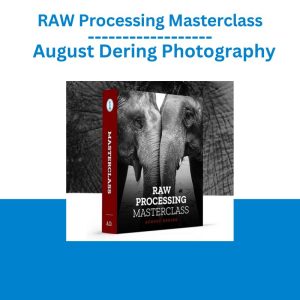*** Proof of Product ***
Exploring the Essential Features of “Pilar Jennings – Psychoanalysis & Tibetan Buddhism: An Unfolding Partnership – Collection”
Please see the full list of alternative group-buy courses available here: https://lunacourse.com/shop/About
For more than half a century there’s been a growing interest in the relevance of Buddhist psychology and meditation to psychodynamic treatment. Carl Jung, along with Karen Horney, Nina Coltart, and many other clinicians across analytic orientations, have made stalwart efforts to explore how a traditional psychoanalytic approach to healing might be enhanced by a Buddhist understanding of suffering and its end.
In this course, Dr. Pilar Jennings will examine how these contrasting traditions understand the roots of personal suffering, and how their complementary though highly divergent methods for alleviating suffering, offer increased opportunities for healing when used in tandem. As a psychoanalyst and long-term practitioner of both Theravada and Tibetan Buddhism, Dr. Jennings will offer her understanding of how these traditions are mutually supportive without losing the integrity of their respective methods.
Given the widespread interest in mindfulness and its clinical applications, this course will focus more specifically on the unique practices found within the Tibetan tradition, including the use of archetypal imagery and visualizations, and how such methods intersect with a psychoanalytic focus on unconscious material, and early relational experience. For clinicians, this course will provide a nuanced exploration of how the analytic treatment of common psychological struggles including depression and anxiety, as well as more complex forms of trauma, may be supported and enhanced by Buddhist insights and methods for both patients and therapists. For meditators, this course will offer ways to more fully understand and address the psychological content that can arise in one’s spiritual practice through a psychodynamic approach to internal life and its development.
Module 1: The Nature of Mind & Self in Psychoanalytic and Buddhist Perspectives
This first class will address how mind and our experience of self, are understood in Buddhist and psychoanalytic models of interiority. The apparent conundrum of bolstering self in psychodynamic work, while undoing and even uprooting self in Buddhist spiritual practice, will be explored. So too, we’ll examine how the unconscious and conscious aspects of mind are viewed and approached from these different vantage points, and see how these divergent perspectives might be mutually enhancing. We will consider the origins of mind, and the awareness of both mind and self, as it’s understood in Buddhist psychology, and how its development is described in psychoanalytic theory.
Module 2: Intersubjectivity & Interpersonal Dynamics in Buddhism & Psychotherapy
A shared focus in both traditions is the emphasis on a close and meaningful relationship between mentor and mentee. As a relational psychoanalyst, Dr. Jennings will explore how psychotherapy places at its focal point the importance of having one’s full spectrum of feelings known, understood, and held by another. In this module, we will explore the ways in which the space between the therapist and patient may be used as a generative and healing realm, a place to experiment with the promises and perils of feeling and being better known. We will compare and contrast these psychoanalytic theories with Buddhist notions of dependent origination and inter-being, and together seek to understand our own subjective response to these theories and methods.
Module 3: Healing the Selfless Self through Countertransference& Transference
In this module we will explore the psychoanalytic theory and experience of transference and countertransference in clinical and spiritual dyads. Themes will include the ways in which patients communicate their unique history and needed healing paths via transference; bridging mindfulness with countertransference to increase attunement; and the language of fantasy and “reverie” in clinical work. Together we will examine how therapists can facilitate a receptive and empathic space through careful attention paid to their own internal response to their clients, and how spiritual practitioners might examine the longings and charged emotional responses that arise in the student/teacher relationship.
Module 4: Buddhist Applications of Love & Compassion in Psychodynamic Treatment
It is often presumed that the role of love and compassion is more relevant in spiritual practice and community than in clinical work. In this last class, we’ll have a look at how such feelings arise in psychoanalytic and therapeutic treatment, and how clinicians might work with these feelings through a Buddhist approach to compassion and its development. One question we will consider is how compassion might become a healing tool more specifically addressed and supported in clinical training? So too, we’ll explore how it has been creatively expressed through the methods offered by clinicians intuitively drawn to clinical treatment informed by empathy, abiding respect, and fellow-feeling.
Students who take this course will:
A Psychoanalytic and Buddhist understanding of self and identity formation.
The role of the unconscious in psychoanalytic work and Buddhist meditation.
Increased understanding of key relational dynamics between therapists and patients and Buddhist teachers and their students.
The role of transference and countertransference in psychodynamic work and spiritual practice.
The cultivation of compassion for self and other in clinical work and Buddhist spirituality.
How Buddhist psychology and psychoanalytic theory describe and approach human development.
Author
Pilar Jennings
Pilar Jennings, Ph.D., is a psychoanalyst in private practice who has focused on the clinical applications of Buddhist meditation. She received her Ph.D. in Psychiatry and Religion from Union Theological Seminary, and has been working with patients and their families through the Harlem Family Institute since 2004. Prior to this training, she earned a Masters in medical anthropology from Columbia University, where she focused on illness narratives, and a Bachelors in interdisciplinary writing from Barnard College of Columbia University. Pilar is a researcher at the Columbia University Center for Study of Science and Religion and Co-chair of the Columbia Faculty Seminar on the Slavery of Memory, where she explores the intergenerational transmission of trauma. She is the author of Mixing Minds: The Power of Relationship in Psychoanalysis and Buddhism.










 Alphashark - The AlphaShark SV-Scalper
Alphashark - The AlphaShark SV-Scalper  Trade Like Mike - The TLM Playbook 2022
Trade Like Mike - The TLM Playbook 2022  Money Miracle - George Angell - Use Other Peoples Money To Make You Rich
Money Miracle - George Angell - Use Other Peoples Money To Make You Rich  Forexmentor - Recurring Forex Patterns
Forexmentor - Recurring Forex Patterns  SMB - Options Training
SMB - Options Training  Racing Workshop - Complete Online Package
Racing Workshop - Complete Online Package  Ed Ponsi - Forex Trading
Ed Ponsi - Forex Trading  Matan Feldman - The 13-Week Cash Flow Modeling - Wall Street Prep
Matan Feldman - The 13-Week Cash Flow Modeling - Wall Street Prep  Dave Landry - Stock Selection Course
Dave Landry - Stock Selection Course  Fred Haug - Virtual Wholesaling Simplified
Fred Haug - Virtual Wholesaling Simplified  Greg Loehr - Advanced Option Trading With Broken Wing Butterflies
Greg Loehr - Advanced Option Trading With Broken Wing Butterflies  Crypto Dan - The Crypto Investing Blueprint To Financial Freedom By 2025
Crypto Dan - The Crypto Investing Blueprint To Financial Freedom By 2025  Chris Capre - Advanced Price Action Ongoing Training & Webinars
Chris Capre - Advanced Price Action Ongoing Training & Webinars  Julie Stoian & Cathy Olson - Launch Gorgeous - Funnel Gorgeous Bundle
Julie Stoian & Cathy Olson - Launch Gorgeous - Funnel Gorgeous Bundle  Toshko Raychev - Profit System + ITF Assistant
Toshko Raychev - Profit System + ITF Assistant  RAW Processing Masterclass – August Dering Photography
RAW Processing Masterclass – August Dering Photography